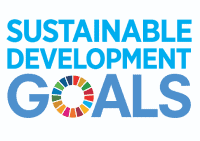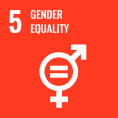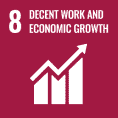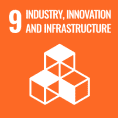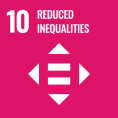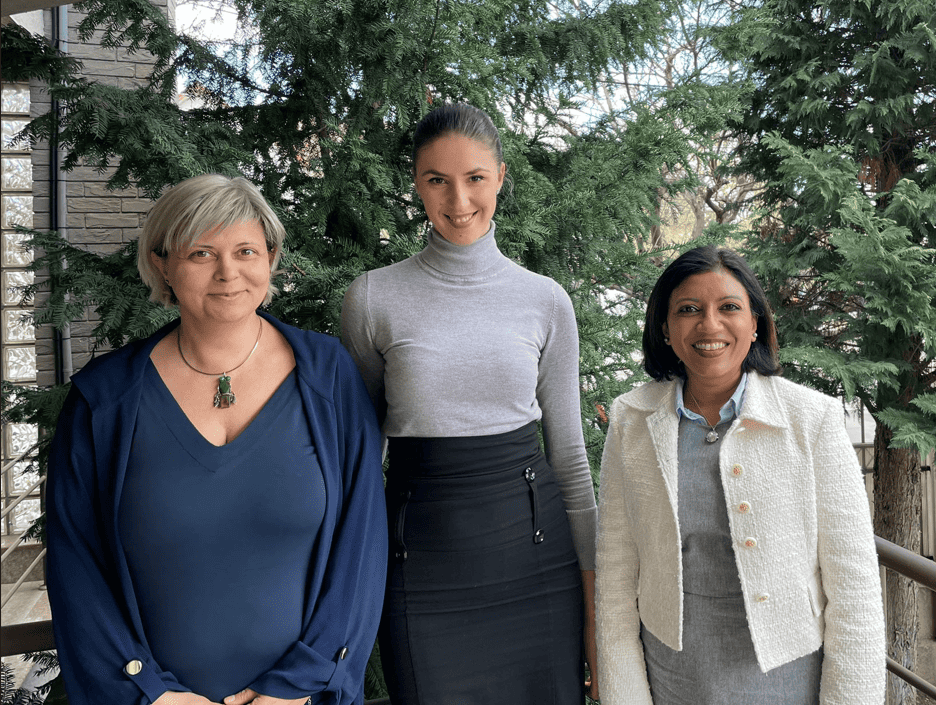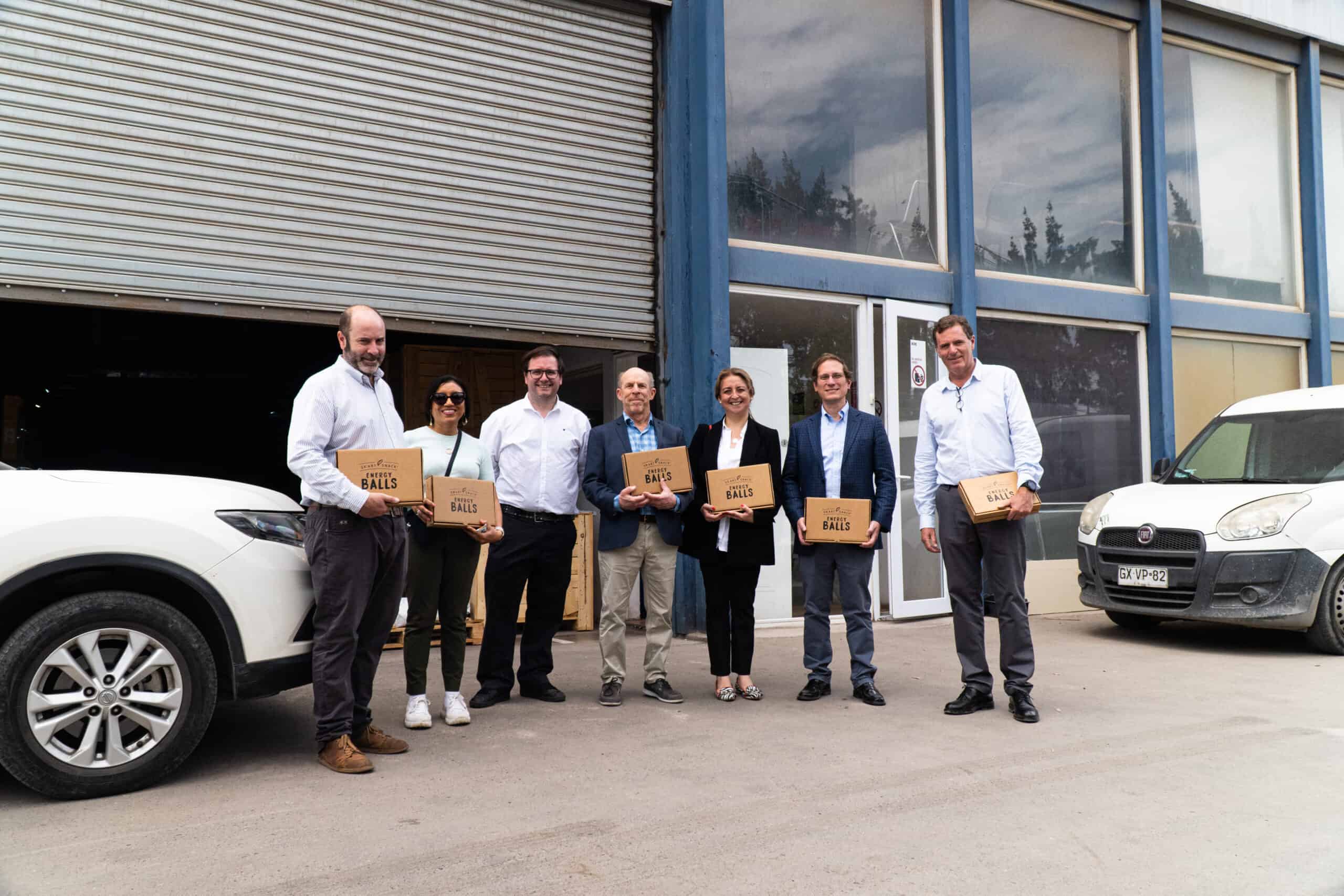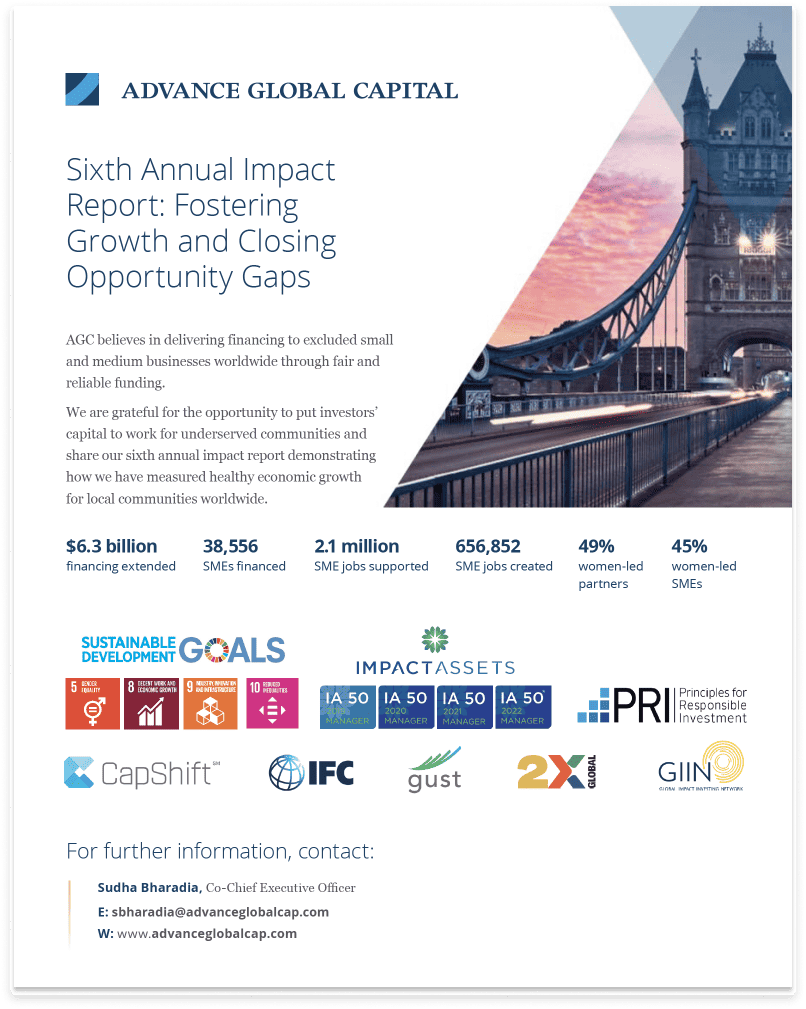From Beans to Bright Futures: Empowering Uganda’s Coffee Community
Thriving naturally along the shores of Lake Victoria in Central Uganda, coffee has historically held a significant role in the lives of its community and the nation’s farmers. Uganda is one of the few countries in the world where coffee is native to the region. The Robusta beans growing wild around Lake Victoria position the plant as a leading source of high-quality coffee, with its indigenous origins being integral to its exceptional value.[1]
“By the time AGC’s partner met us, we were doing five containers per year. Now, we are targeting 20 per week in our facility,” explains Buule Ronald, Executive Director of the Central Coffee Farmers’ Association (CECOFA), regarding the growth of the company’s production facility.
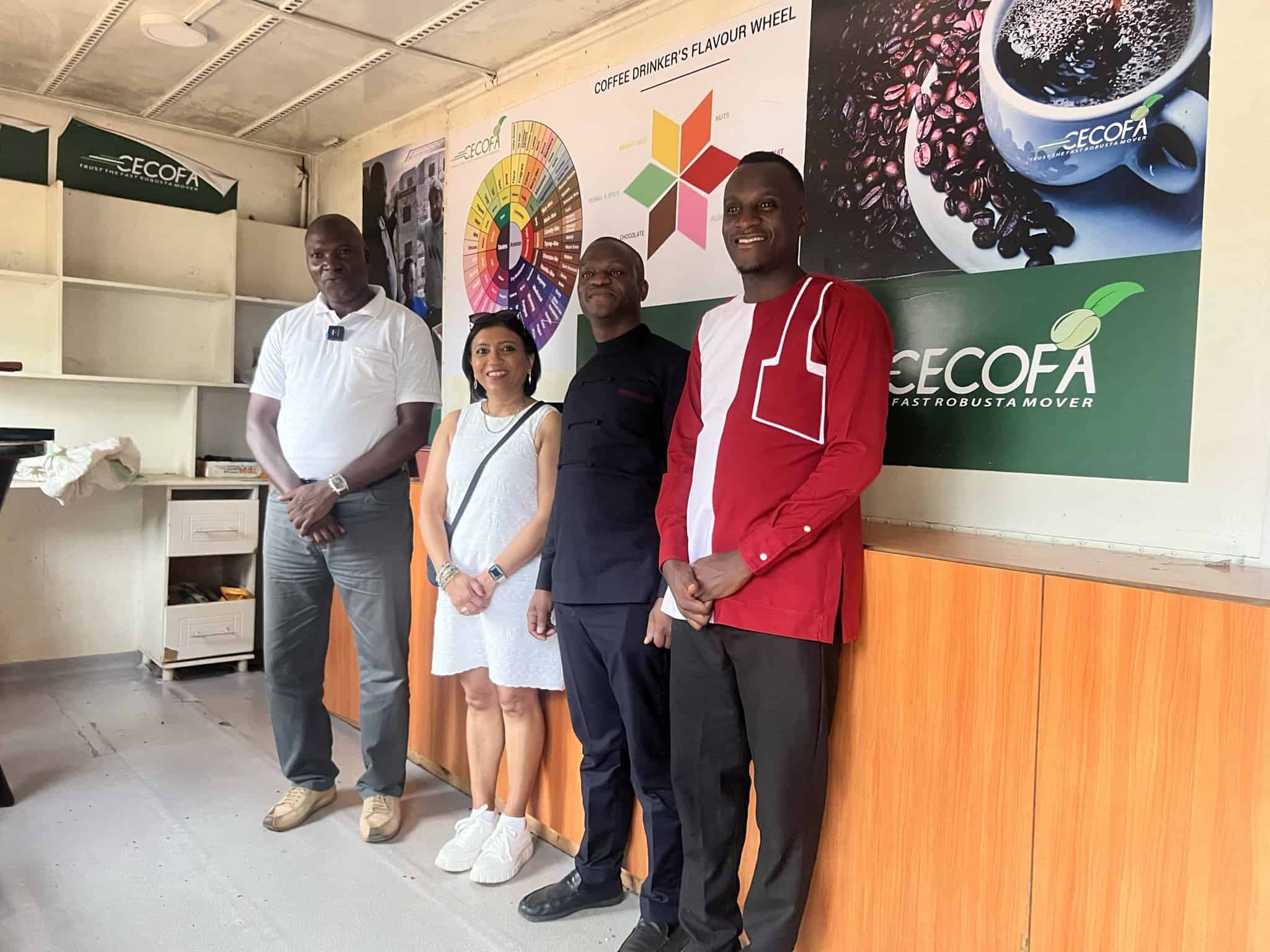
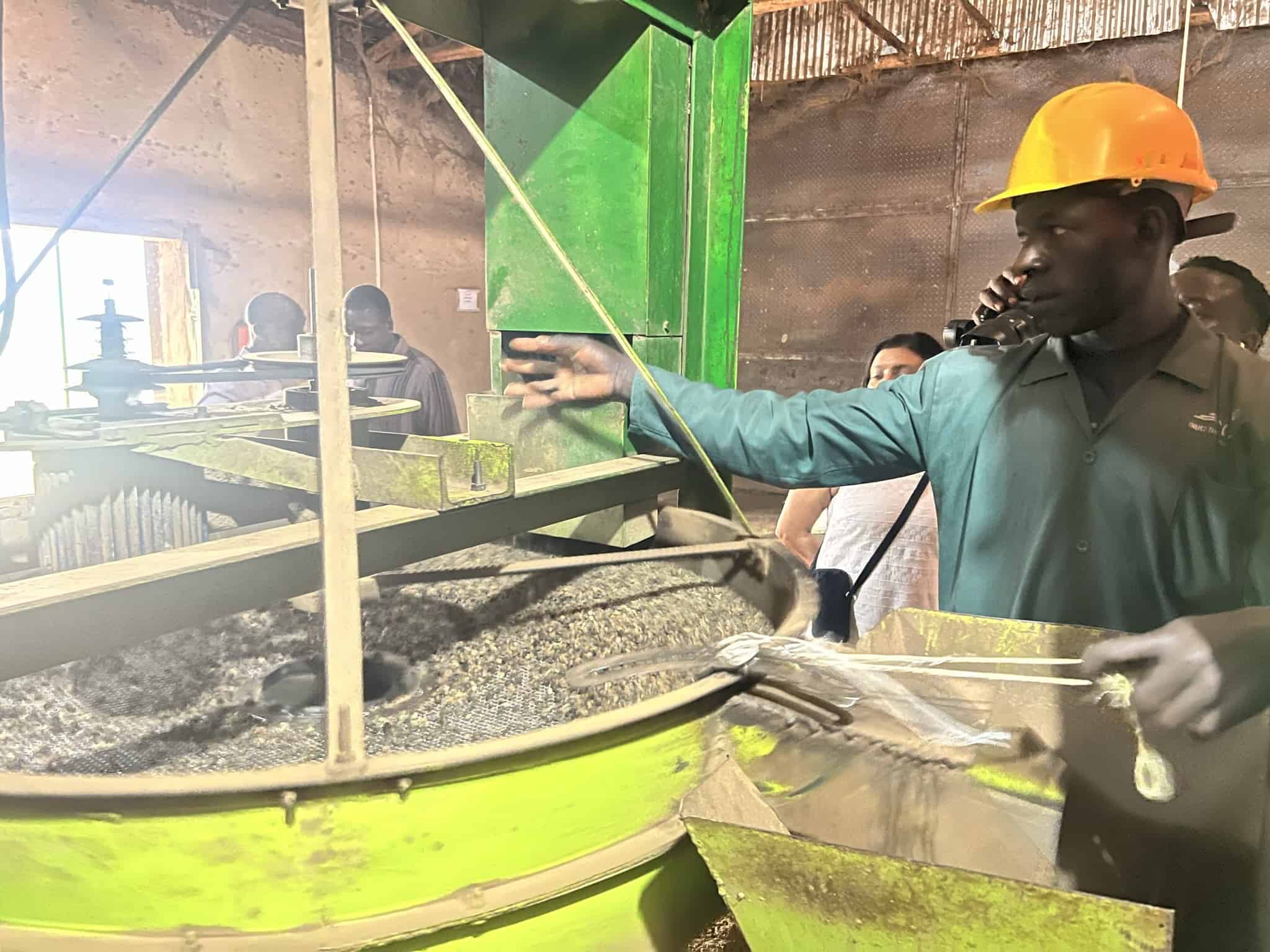
During a recent visit to Kampala, Uganda, AGC’s Co-CEO Sudha Bharadia learned more about the value that coffee brings to the local community. Established in 2004 as Nsangi Coffee Farmers Association and renamed Central Coffee Farmers Association in 2016, CECOFA has been bringing together its community of farmers in the central Ugandan region for two decades. Growing from 5,000 to 135,000 farmers over the years, the association uses coffee to spearhead its mission of addressing poverty through agricultural practices. Beyond meeting the demand for local coffee consumption and exports from Uganda, CECOFA also focuses its efforts on supporting the elderly, children, and women in their community.
“We respect gender because, without gender, you cannot qualify for the fair trade [certification],” Buule Ronald shares. “Of course, we need that certificate very much. It’s so important. The number of women [we employ] is more than men,” he adds, sharing further that the women employed with CECOFA cover roles in administration, field officers and logistics. The association also fosters an environment for women to develop their community through handicrafts.
We respect gender because, without gender, you cannot qualify for the fair trade [certification].
– Buule Ronald.
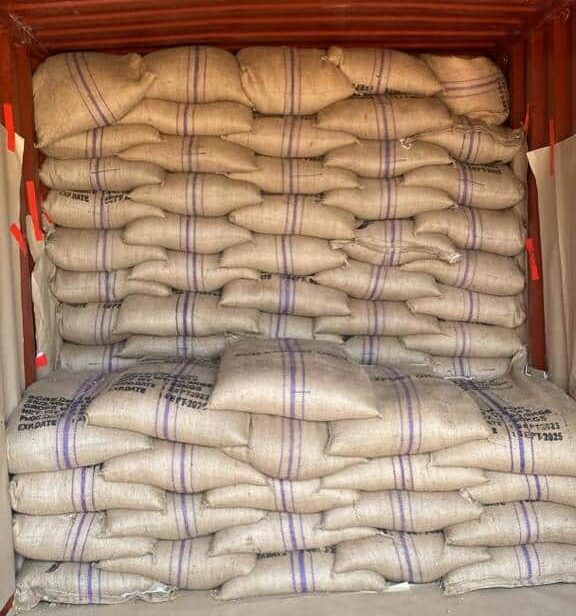
Although CECOFA has developed its farming community and teams, resources for working capital remained a challenge at various stages of the value chain. Having grown up witnessing his grandfather’s work with Ugandan farmers, Buule Ronald understood the link between the financial hardships farmers were facing in the coffee-making industry and how these challenges linked to dependence on the robust technology the business demands.
“We had to look for ways to set up a hulling machine. In the coffee industry, this machine is a primary level, the grounding machine is the secondary level. After getting the hulling machine, we started collecting coffee from different farmers, then we pay them. By then, there were between 200 and 300 farmers, and the payment was possible because of the buyers. But once we added more farmers, it became a challenge. Because we are now working with 135,000 farmers, the problem of payments came in. The volume increased, but we could not afford to pay the farmers. Then we had to knock on the door of AGC’s partner,” Buule explains.
Founded in 2016, AGC’s partner operates their financial services company for sectors such as agriculture to support SMEs like CECOFA. Through their model, SMEs can sell their products to buyers at better payment terms or receive a payment advance, enabling them to fulfil orders, which has been beneficial to CECOFA as it can take up to two months for them to receive payments. “We went to AGC’s partner, and it worked well with them. They were giving us money on time. They [AGC’s partner] assisted us, and that assistance is the way we achieved the grading machine used for export. When you get the coffee from the hulling, and you take it to the grading machine, then the coffee is ready for export,” Buule added. Uganda’s coffee exports dominate the market, with over 95% of the annual production distributed globally as green beans.[2]
The scale of coffee exportation is considerable, generating the need for resources not only for payments but also for acquiring essential equipment to meet the demand for exports critical for CECOFA. AGC’s position in Africa further cements our mission to continue supporting SMEs in thriving economic sectors around the continent. With coffee serving as a catalyst for socioeconomic development in Uganda, challenges such as resource constraints along the value chain are being addressed through agreements with our partner, enabling SMEs like CECOFA to overcome barriers and thrive in the global market.
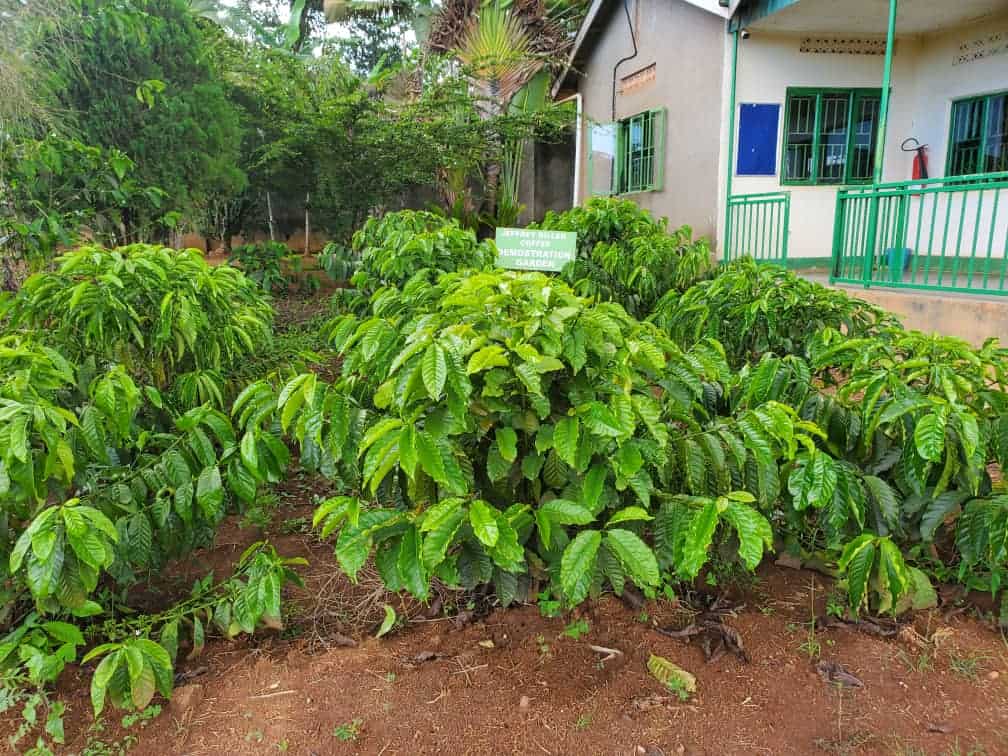
Alignment to Global Sustainability Standards
We are closely aligned with United Nations Sustainability Goals 5, 8, 9 and 10
